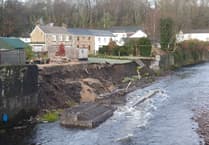Questions for a public discussion on whether Powys County Council should implement a tourism levy need to be carefully worded, a councillor has warned.
At a meeting of the council’s Economy, Communities and Residents scrutiny committee on Thursday, September 4, councillors received a report outlining the pros and cons of introducing the levy, which could bring extra income into council coffers to help run services.
The report, which will go before Cabinet later this month, set out five options for how to proceed.
Council officers have recommended option two, which proposes “gathering evidence” to gauge the views of residents and the tourism sector before making any decision on the levy’s future.
Former council leader, Cllr James Gibson-Watt, who has remained in cabinet looking after the education and economic development briefs, said senior councillors wanted to hear the scrutiny committee’s views before “committing” to any of the options.
Cllr Gibson-Watt said: “It’s an interesting idea, but as is often the case Welsh Government tend to delegate controversial things down to local government to make the final decision.
“This levy idea is not a new one – it’s well established in many countries of the world.”
Taking Barcelona as an example, he said: “Everything works, the public transport is fantastic, the streets are regularly cleaned, the recycling and rubbish is picked up every day and the visitor experience is greatly enhanced.
“However, Powys is more complicated. We do have one or two honey-pot locations such as Powis Castle, Storey Arms and Pen y Fan in the Brecon Beacons, but finding a one-size-fits-all approach is very difficult.”
He added that the tourism sector had given a “clear steer” that they did not think the levy was a “good idea at all.”
Cllr Pete Lewington (Conservative – Newtown West) said: “We should be pro-tourism as it brings many economic benefits to the county – it’s a vital employer.”
He estimated that one in seven jobs in Powys relies on the sector.
“For me, this tax would mean fewer tourists and visitors and that in turn leads to job losses and less income being spent on our high streets. The potential disadvantages need to be teased out.”
He was also concerned that any money raised would be used to plug the council’s budget gap rather than improve tourism-related infrastructure.
“Careful wording of the questions would be fundamental,” he added. “Residents who don’t work in the tourism industry will think this is a brilliant idea because it’s going to reduce their Council Tax – without fully understanding what is behind it.”
Cllr Liz Rijnenberg (Labour – Brecon East) said: “I think we need to take a cautious approach with this. The important thing, and the bit which is missing from the report, is the views of the general public. I am all for finding out what they feel.”
A vote saw five councillors back option two, with one against.
The Visitor Accommodation (Register and Levy) Etc. (Wales) Bill is Wales’ first locally designed tax.
The legislation was approved by the Senedd in July and is expected to receive Royal Assent later this year.
The levy is a charge on overnight accommodation and would cost £0.75 per person per night at campsites and hostels, excluding under-18s. For all other types of visitor accommodation, it would cost £1.30 per person per night.





Comments
This article has no comments yet. Be the first to leave a comment.